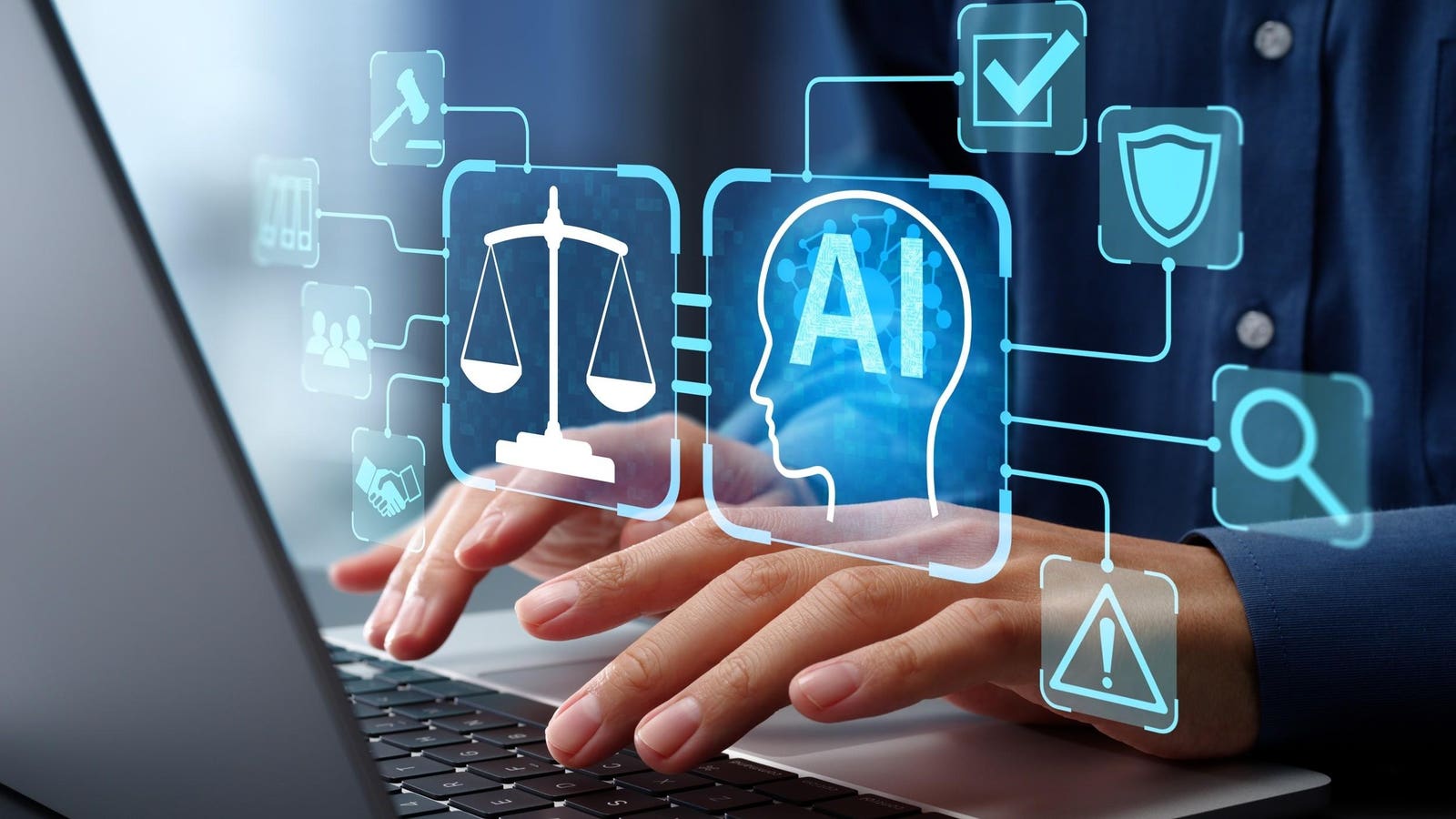Innovation and Technology
Snorkel AI Secures $100 Million Funding to Develop Advanced AI Evaluators

Introduction to Snorkel AI
Snorkel AI CEO Alex Ratner said his company is placing more emphasis on helping subject matter experts build datasets and models for evaluating AI systems. Alex Ratner, CEO of Snorkel AI, remembers a time when data labeling —the grueling task of adding context to swathes of raw data and grading an AI model’s response— was considered “janitorial” work among AI researchers. But that quickly changed when ChatGPT stunned the world in 2022 and breathed new life (and billions of dollars) into a string of startups rushing to supply human-labeled data to the likes of OpenAI and Anthropic to train capable models.
Shift in Data Labeling
Now, the crowded field of data labeling appears to be undergoing another shift. Fewer companies are training large language models from scratch, leaving that task instead to the tech giants. Instead, they are fine-tuning models and building applications in areas like software development, healthcare, and finance, creating demand for specialized data. AI chatbots no longer just write essays and haikus; they’re being tasked with high-stakes jobs like helping physicians make diagnoses or screening loan applications, and they’re making more mistakes. Assessing a model’s performance has become crucial for businesses to trust and ultimately adopt AI, Ratner said. “Evaluation has become the new entry point,” he told Forbes.
New Direction for Snorkel AI
That urgency for measuring AI’s abilities across very specific use cases has sparked a new direction for Snorkel AI, which is shifting gears to help enterprises create evaluation systems and datasets to test their AI models and adjust them accordingly. Data scientists and subject matter experts within an enterprise use Snorkel’s software to curate and generate thousands of prompt and response pairs as examples of what a correct answer looks like to a query. The AI model is then evaluated according to that dataset, and trained on it to improve overall quality.
Funding and Growth
The company has now raised $100 million in a Series D funding round led by New York-based VC firm Addition at a $1.3 billion valuation— a 30% increase from its $1 billion valuation in 2021. The relatively small change in valuation could be a sign that the company hasn’t grown as investors expected, but Ratner said it’s a result of a “healthy correction in the broader market.” Snorkel AI declined to disclose revenue.
Success Stories
Customer support experts at a large telecommunication company have used Snorkel AI to evaluate and fine-tune its chatbot to answer billing-related questions and schedule appointments, Ratner told Forbes. Loan officers at one of the top three U.S. banks have used Snorkel to train an AI system that mined databases to answer questions about large institutional customers, improving its accuracy from 25% to 93%, Ratner said. For nascent AI startup Rox that didn’t have the manpower or time to evaluate its AI system for salespeople, Snorkel helped improve the accuracy by between 10% to 12%, Rox cofounder Sriram Sridharan told Forbes.
Competition and Challenges
It’s a new focus for the once-buzzy company, which spun out of the Stanford Artificial Intelligence Lab in 2019 with a product that helped experts classify thousands of images and text. But since the launch of ChatGPT in 2022, the startup has been largely overshadowed by bigger rivals as more companies flooded the data labeling space. Scale AI, which also offers data labeling and evaluation services, is reportedly in talks to finalize a share sale at a $25 billion valuation, up from its $13.8 billion valuation a year ago. Other competitors include Turing, which doubled its valuation to $2.2 billion from 2021, and Invisible Technologies, which booked $134 million in 2024 revenue without raising much from VCs at all.
Differentiation and Future Plans
Snorkel has faced macro challenges too: As AI models like those powering ChatGPT got better, they could label data on a massive scale for free, shrinking the size of the market further. Ratner acknowledged that Snorkel saw a brief period of slow growth right after OpenAI launched ChatGPT and said enterprises had paused pi
Innovation and Technology
AI Agents Deliver Productivity, But That’s Only Part Of The Story

Introduction to AI Agents in the Workplace
The word on agentic AI’s ability to deliver on its promises is: so far, so good. With caveats. A majority of 300 senior executives adopting AI agents, 66%, say they’re delivering positive results in terms of productivity, a recent PwC survey suggests. But, let’s face it — all systems deliver some degree of productivity. What executives need is that extra edge that delivers extreme competitive differentiation.
Current State of AI Agents
At this point, few AI agents are ”transforming how work gets done," the PwC report’s authors state. “Many employees are using agentic features built into enterprise apps to speed up routine tasks — surfacing insights, updating records, answering questions. It’s a meaningful boost in productivity, but it stops short of transformation.” The biggest barrier isn’t the technology; “it’s mindset, change readiness and workforce engagement,” the PwC authors conclude.
Challenges and Limitations
Mahe Bayireddi, CEO and co-founder of Phenom, which offers agents for HR tasks, agrees this is where the challenge lies. “I think there’s a lot of learning in this whole process,” he said. “There are no experts dynamically saying how they can handle AI agents effectively.” Agents can bring up productivity almost by 20-30%, if they use it in the right format, do the change management effectively, and use the data in an engagement format,” Bayireddi continued. “The point is how do they make it fly, how do they manage the change management."
Importance of Context and Personalization
AI agents and the data they consume need to be domain-specific, and will vary industry to industry, company to company. “The data at the universal level is actually complex," he said. "The nuance of a context and that nuance of personalization is very critical for AI to work. It can’t be too general.” The rise of agents advances generative AI to more practical levels. Once put into place, agents can be “baked into the workflows," he said. “Up to now, everybody has had to go to ChatGPT and ask a question and get an answer. It’s not the way how people work.”
Future of Work with AI Agents
The emphasis needs to be on addressing the nuances of functions and processes to be automated with agents. “That has to manifest in an effective format with a context,” he said. "That can only happen with an agent being effective in a department.” Bayireddi doesn’t see agents as a threat to jobs, but they will change the nature of jobs. “There are new jobs which are going to come up because of agents. There is a new work which is also going to pop up because of agents. Skills is one thing, but also the work will change and the jobs will change.”
Conclusion
Don’t settle for too little when it comes to AI agents, the PwC authors advised. “Companies that stop at pilot projects will soon find themselves outpaced by competitors willing to redesign how work gets done. We see few companies moving early to define the future, building new operating models that integrate and orchestrate multiple AI agents. Fewer than half are fundamentally rethinking operating models and how work gets done (45%) or redesigning processes around AI agents (42%).”
FAQs
Q: What percentage of senior executives say AI agents are delivering positive results in terms of productivity?
A: 66%
Q: What is the biggest barrier to AI agent adoption?
A: Mindset, change readiness, and workforce engagement
Q: Can AI agents bring up productivity?
A: Yes, by 20-30% if used in the right format and with effective change management
Q: Will AI agents replace jobs?
A: No, but they will change the nature of jobs and create new ones.
Innovation and Technology
Generative AI Tools For Lawyers

Introduction to AI in Law
For seasoned lawyers, as well as laypeople, simply trying to make sense of a tricky contract, new tools powered by generative AI promise to transform the way we engage with the law. Legal professionals often devote large chunks of their time to drafting contracts, researching previous cases, preparing documents for submission to court, or reviewing case law. Even for non-lawyers, many everyday tasks can require diving into legal concepts and principles—wading through corporate T&Cs, tenancy agreements, consumer rights advice or business compliance.
The Rise of GenAI Tools in Law
Fortunately, lawyers—professional and armchair varieties—are finding that there’s a wealth of genAI tools out there that can make their lives easier. So here’s my rundown of some of the leading apps, tools, and services that help with legal tasks. Some can help law firms and professionals automate dull and repetitive jobs, while others aim to make the legal systems and courts more accessible to laypeople.
Leading AI Platforms for Legal Tasks
Harvey AI is among the market-leading legal AI platforms. Like many of the tools here, it’s built on LLM technology (in this case, OpenAI’s GPT models that also power ChatGPT). However, it’s been fine-tuned to be particularly efficient when it comes to legal tasks such as research, contract analysis and compliance. As well as the vast amounts of training data at its disposal, it is further fine-tuned on domain-specific legal knowledge to ensure firms get assistance that’s tailored to their own way of working. Harvey now also offers agentic genAI capabilities, allowing it to work autonomously on carrying out longer, multi-step tasks.
LexisNexis has existed for more than 50 years as a database of legal information, including court decisions, judgments and case law. Today, it’s been given a generative AI upgrade in the form of Lexis+, which is designed to act as an AI legal assistant. Users—generally legal professionals—can engage through a conversational search interface in order to create tailored legal documents, and correspondence, as well as identify relevant case law, statutes and legal commentary. It also provides instant summaries of complex legal texts and integrates with Lexis’s Shepard Citation Service, ensuring citations are correct and up-to-date.
Consumer-Focused AI Tools
This is a web-based platform offering generative AI tools for a wide variety of legal tasks often faced by consumers and laypeople, including fighting parking charges, reclaiming debts and disputing bank fees. It isn’t purely AI-based—there is a strong community element to the service, too, and plenty of articles giving useful advice on a number of consumer rights, data protection and privacy issues. Billed as the "consumer AI champion," it can be used to generate dispute letters, file claims and navigate complex court processes no matter how inexperienced a user is in legal matters.
AI Assistants for Legal Professionals
Operated by Thompson Reuters, CoCounsel is an AI legal assistant that crunches through repetitive digital workloads like reviewing documents, researching case law, and identifying critical questions. It has developed a reputation as trustworthy among law firms due to a focus on robust data protection and privacy safeguards. CoCounsel has also added what it calls agentic functionality to its platform. Although it isn’t yet clear what their AI agents will do, it’s speculated that the legal industry will be heavily impacted by the adoption of these next-generation AI tools that promise even greater levels of automation.
Streamlining Legal Document Creation
GenAI-powered lawtech platform was built to streamline the creation of legal documents and the negotiation involved in contracts and agreements. Specifically tailored for startups and small businesses without full in-house legal teams, it offers AI-customized legal templates from employment contracts to NDAs, covering any standard documentation that smaller organizations might require. As it’s designed to be used by non-professionals as well as professionals, it features powerful functionality around reducing complexity and providing easy-to-digest explanations of contract clauses.
More Great Tools
That’s far from all of the tools out there designed for lawyers and armchair lawyers. If none of the above do exactly what you need, take a look at one of these:
- Blue J: AI-powered research assistant designed to help accountants and other professional services understand tax laws.
- ContractPod AI: Users of enterprise legal AI platform ContractPod can access Leah, a virtual legal ass
Innovation and Technology
The Future of DEIA: Trends and Innovations in Inclusive Software

Software and platforms for DEIA (Diversity, Equity, Inclusion, and Accessibility) are revolutionizing the way organizations approach these critical aspects. In this article, we will explore the latest trends and innovations in inclusive software, helping you stay ahead of the curve. From AI-powered tools to virtual reality experiences, the future of DEIA has never been more exciting.
Current State of DEIA in Software
The current state of DEIA in software is rapidly evolving, with a growing demand for more inclusive and diverse solutions. Many organizations are now recognizing the importance of creating a welcoming and inclusive environment for all employees, customers, and users. As a result, there is a surge in the development of software and platforms that cater to diverse needs and promote equity.
Challenges in Implementing DEIA
Despite the growing awareness and importance of DEIA, many organizations still face significant challenges in implementing effective DEIA strategies. One of the primary challenges is the lack of diversity in the tech industry itself, which can result in software that is not inclusive or accessible to all users. Additionally, there is often a lack of resources and budget allocated to DEIA initiatives, making it difficult to implement and sustain effective programs.
Benefits of DEIA in Software
The benefits of incorporating DEIA into software are numerous and well-documented. Inclusive software can lead to increased user engagement, improved customer satisfaction, and enhanced brand reputation. Moreover, diverse and inclusive software can also lead to increased innovation, creativity, and problem-solving, as diverse perspectives and ideas are brought to the table.
Emerging Trends in DEIA Software
Several emerging trends are shaping the future of DEIA in software, including the use of artificial intelligence (AI) and machine learning (ML) to promote diversity and inclusion. AI-powered tools can help identify and mitigate bias in software, while ML algorithms can analyze user data to provide personalized and inclusive experiences.
AI-Powered DEIA Tools
AI-powered DEIA tools are being developed to help organizations identify and address bias in their software and systems. These tools can analyze language, images, and other data to detect potential biases and provide recommendations for improvement. For example, AI-powered tools can help identify biased language in job postings, which can discourage diverse candidates from applying.
Virtual Reality and Accessibility
Virtual reality (VR) and augmented reality (AR) are being used to create immersive and inclusive experiences for users with disabilities. VR and AR can provide equal access to information, education, and employment opportunities, breaking down barriers and promoting inclusion. For instance, VR can be used to create virtual job training programs that simulate real-world scenarios, helping individuals with disabilities to develop skills and gain confidence.
Innovations in Inclusive Software
Several innovations are transforming the landscape of inclusive software, including the development of accessible and inclusive user interfaces, personalized learning platforms, and inclusive gaming experiences.
Accessible User Interfaces
Inclusive user interfaces are being designed to provide equal access to information and services for users with disabilities. These interfaces include features such as text-to-speech functionality, high contrast modes, and closed captions. For example, accessible user interfaces can be used in online banking systems, allowing users with visual impairments to manage their finances independently.
Personalized Learning Platforms
Personalized learning platforms are being developed to provide tailored learning experiences for users with diverse learning needs. These platforms use AI and ML to analyze user data and provide customized learning paths, promoting equity and inclusion in education. For instance, personalized learning platforms can be used in online education systems, helping students with disabilities to access learning materials and resources that meet their individual needs.
Future of DEIA in Software
The future of DEIA in software is promising, with emerging trends and innovations paving the way for a more inclusive and equitable tech industry. As technology continues to advance, we can expect to see even more innovative solutions that promote diversity, equity, inclusion, and accessibility.
Increased Adoption of DEIA
There will be an increased adoption of DEIA principles and practices in the tech industry, with more organizations recognizing the importance of creating inclusive and diverse software. This will lead to a more equitable and just tech industry, where everyone has access to opportunities and resources.
Advances in
-

 Career Advice6 months ago
Career Advice6 months agoInterview with Dr. Kristy K. Taylor, WORxK Global News Magazine Founder
-

 Diversity and Inclusion (DEIA)6 months ago
Diversity and Inclusion (DEIA)6 months agoSarah Herrlinger Talks AirPods Pro Hearing Aid
-

 Career Advice6 months ago
Career Advice6 months agoNetWork Your Way to Success: Top Tips for Maximizing Your Professional Network
-

 Changemaker Interviews5 months ago
Changemaker Interviews5 months agoUnlocking Human Potential: Kim Groshek’s Journey to Transforming Leadership and Stress Resilience
-

 Diversity and Inclusion (DEIA)6 months ago
Diversity and Inclusion (DEIA)6 months agoThe Power of Belonging: Why Feeling Accepted Matters in the Workplace
-

 Global Trends and Politics6 months ago
Global Trends and Politics6 months agoHealth-care stocks fall after Warren PBM bill, Brian Thompson shooting
-

 Global Trends and Politics6 months ago
Global Trends and Politics6 months agoUnionization Goes Mainstream: How the Changing Workforce is Driving Demand for Collective Bargaining
-

 Training and Development6 months ago
Training and Development6 months agoLevel Up: How Upskilling Can Help You Stay Ahead of the Curve in a Rapidly Changing Industry





















